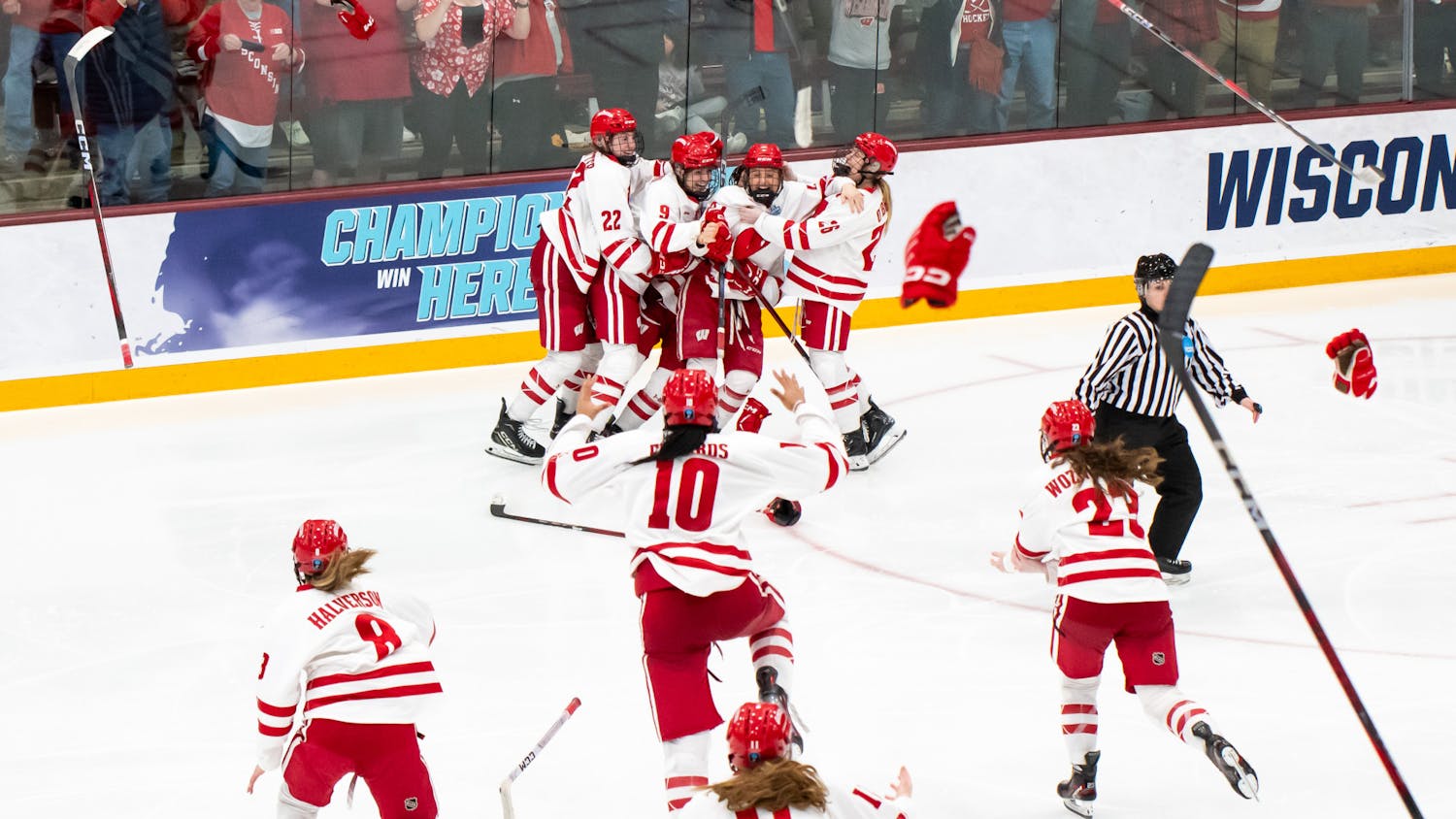Cries of “I can’t eat” once again rang through a UW-Madison dining hall as students gathered Tuesday evening in opposition to the university’s meal plan for incoming freshmen.
Nearly two dozen UW-Madison students and community members shared stories about how the meal plan will negatively impact loved ones, as well as chanted slogans like “This meal plan has got to go” as they marched through Four Lakes Market in Dejope Residence Hall.
According to protest organizer Rena Newman, the purpose of the demonstration was to let university officials know students are “still here” and still angry about the meal plan that will require incoming freshmen to deposit a minimum of $1,400 onto their WisCard exclusively for dining.
Many protesters decried the meal plan for adding an additional fee onto what they said was an already expensive cost of living at UW-Madison.
Chelsea Yigan — a UW-Madison freshman and protest organizer — said that had she been an incoming freshman next year, she would not have been able to attend UW-Madison due to the “monetary strain” the additional cost of the meal plan would have put on her family.
“I already had to take out a student loan for housing this year,” Yigan said. “I can’t imagine how someone who was in my situation as a high school senior right now could apply.”
Following student testimony and chants calling for the resignation of Housing Director Jeff Novak, the protesters marched from Dejope to Slichter Residence Hall, taping a poster with their signatures reading “End This Discriminatory Meal Plan” to the University Housing Office door.
This protest comes nearly a month after students temporarily blocked off the entrance to Gordon Dining Hall in opposition to the meal plan. During the protest, students threw dining trays on the floor.
UW-Madison Division of Dining spokesperson Brendon Dybdahl said last month’s throwing and marking of trays was “not ideal,” but that housing leaders and Student Life officials have since had meetings with organizers to discuss protest expectations and ensure demonstrations go forward “in a positive way for everybody.”
Newman acknowledged that these meetings occurred but claimed the conversations were not about ensuring the demonstrations were positive for everyone. Newman said the meetings with officials were "exclusively to discuss the policy and student demands."
Approximately nine university police officers were present at the protest Tuesday. Officers handed out pamphlets explaining protester rights and differentiating between lawful and unlawful protests.
UW-Madison spokesperson Meredith McGlone released a statement shortly after the protest, saying the university was pleased the demonstration was peaceful and that dining operations were able to continue as usual.
McGlone highlighted that University Housing leaders had previously met with students to “hear their concerns firsthand and share information,” adding that UW-Madison's room and board are the lowest in the Big Ten.
“We believe that the $350 quarterly payment for dining provides the predictability that parents and students have asked for while helping keep food prices affordable,” McGlone said. “We have responded to student feedback by making a number of changes, including allowing the rollover of unused funds and creating an exemption process for students with religious and other dietary needs.”
Despite this university effort, UW-Madison junior and organizer Dannira Kulenovic said these demonstrations will not stop until the university addresses student concerns.
“We want our voices to be heard,” Kulenovic said. “Until they are heard, we can’t really stop organizing around this sort of event.”
Kayla Huynh and Jon Brockman contributed to this reporting.
March 13, 2017 at 9:03 p.m.: This story was updated to include Newman's response to Dybdahl's statement.





